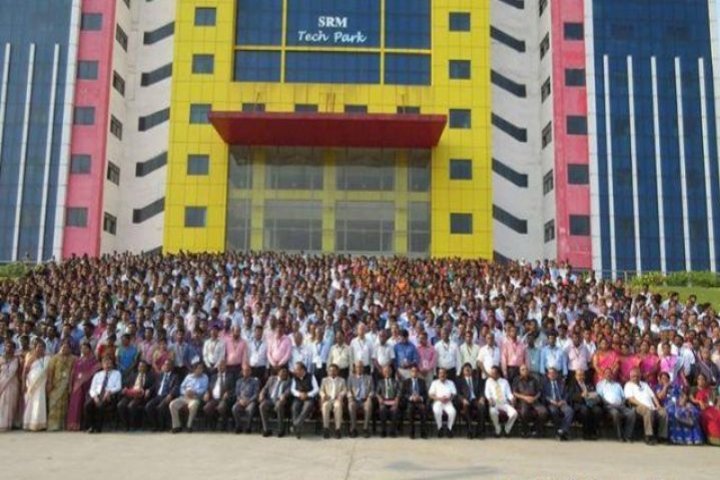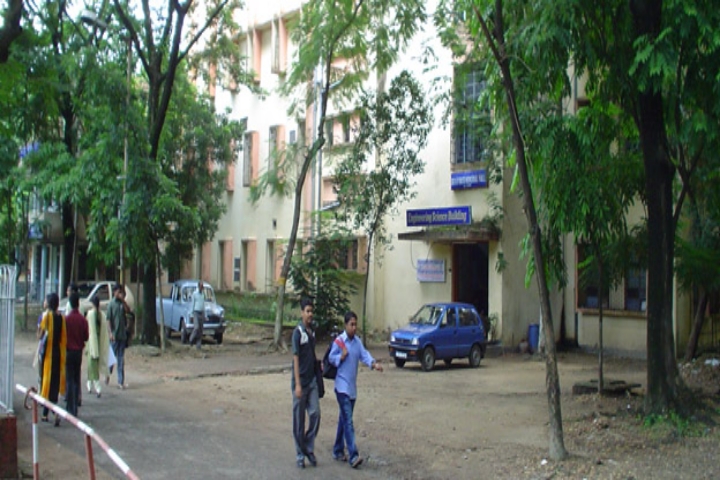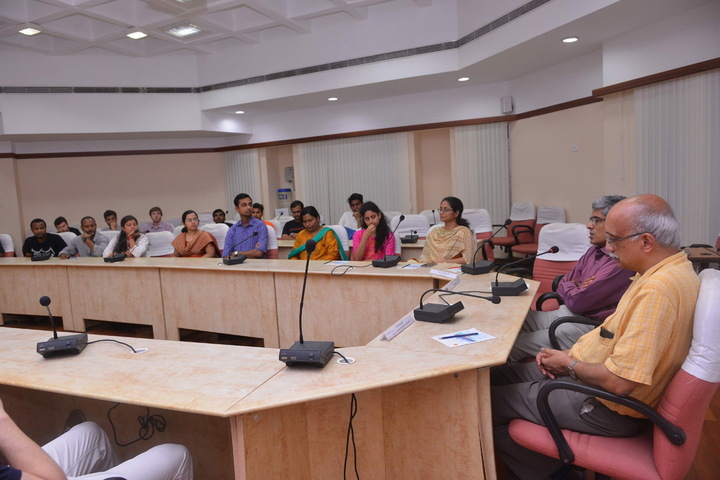
Nano Technology Engineering Course Details - Fees, Subjects, Syllabus, Duration, Eligibility, Career Scope
Degrees offered: M.E /M.Tech., Ph.D, M.Sc., B.E /B.Tech, B.Sc.
What is Nano Technology Engineering
Nanotechnology Engineering is the manipulation of nanomaterials to convert it into useful and effective materials, structures, devices. And the branch of engineering that deals with the study of nanotechnology is known as Nanotechnology Engineering or Nanoengineering.
Nanotechnology Engineering includes the formation of products at an atomic level and innovating effective machinery and tools. Various industries such as electronics and power generation have already adapted this technology.
Students who want to build a lucrative career in the field of Engineering can study Nanotechnology Engineering in graduation as it is a promising field and has a wide scope. It is assumed that the revolution brought by nanotechnology will be way broader than IT and the internet.
Highlights- Nanotechnology Engineering
| Particulars | Values |
|---|---|
Branch Name | Nanotechnology Engineering |
Degree | B.E/B.Tech, M.E/M.Tech |
Duration | UG: 4 years PG: 2 years |
Eligibility | UG: 10+2 PG: Bachelor’s degree |
Admission Process | Entrance Exam |
Top Entrance Exams | JEE Main, JEE Advanced, GATE |
Average Course Fees | Rs. 28,400 to Rs. 2.52 Lakhs |
Career Options | Project Assistant, Projects Engineer, Service Engineer, Account Engineer |
Average Salary | Rs. 4 LPA |
Recruiting Companies | CSIR, DRDO, BARC, IISc, Amity University, Global Pharma MNC |
Top Nanotechnology Engineering Colleges in India
In India, many public and private institutions offer courses in Nanotechnology Engineering courses. The admission procedure typically involves entrance exams, and many institutions also incorporate personal interviews or other aptitude tests into their selection process. The following are some of the top colleges for Nanotechnology Engineering.
| Colleges | Fees |
|---|---|
- | |
Rs. 2.52 Lakhs | |
Rs. 1.03 Lakhs | |
Rs. 1.31 Lakhs | |
Rs. 2.99 Lakhs | |
Rs. 1.31 Lakhs | |
Rs. 38,210 | |
Rs. 1.44 Lakhs | |
Rs. 1.31 Lakhs | |
Rs. 28,400 |
Top Private Nanotechnology Engineering Colleges in India
Numerous private institutions across India offer Nanotechnology Engineering courses. Admission to these colleges is typically based on either entrance examinations or direct admission procedures that consider merit scores. The following are some of the top Nanotechnology Engineering colleges in India.
| Colleges | Fees |
|---|---|
AIET Gulbarga | - |
Amity University Gurgaon | Rs. 2.52 Lakhs |
BVUCOE Pune | Rs. 1.03 Lakhs |
CCET Bhilai | Rs. 1.31 Lakhs |
SASTRA University Thanjavur | Rs. 2.99 Lakhs |
Top Government Nanotechnology Engineering Colleges in India
Several government engineering institutes offer Nanotechnology Engineering courses, candidates are advised to carefully follow the admission process, and satisfy the eligibility requirements before applying to the course. Mentioned below are the top government institutes offering Nanotechnology Engineering courses.
| Colleges | Fees |
|---|---|
Annamalai University | Rs. 1.31 Lakhs |
BIT Sindri | Rs. 38,210 |
DIAT Pune | Rs. 1.44 Lakhs |
GJU Hisar | Rs. 1.31 Lakhs |
IISc Bangalore | Rs. 28,400 |
Eligibility Criteria (UG & PG) of Nano Technology Engineering
Eligibility Criteria for UG Courses
The undergraduate syllabus of Nanotechnology Engineering is very similar for every institute. Candidates must meet the eligibility requirements before applying for the admissions. Mentioned below are the eligibility requirements of undergraduate courses in the field of Nanotechnology.
- The candidate applying for Bachelor in Nanotechnology Engineering should have qualified their class 12th board exams from a recognized central or state school education board in India.
- The candidate should have mandatorily studied PCM subjects in their class 12th exams i.e. Physics, Chemistry, and Maths.
- The candidate must have an aggregate of 55% or more in their class 12th exams for securing admission in most of the colleges.
Top Entrance Exams for UG Courses
JEE Main: JEE Main is conducted for admission to top-tier engineering colleges like NITs, IIITs, and GFTIs. Candidates need to be aware of some specific factors before attempting the JEE Main exam to get into B Tech Instrumentation & Control Engineering colleges and the JEE mains exam is conducted by NTA.
JEE Advanced: JEE Advanced is conducted by the Indian Institute of Technology. This is a national level exam. The exam is held once in a year for IITs. The mode of the exam is online. JEE Advanced is conducted in a computer-based mode at the national level. It has two papers (Paper I & Paper II) conducted for three hours for each paper.
Eligibility Criteria for PG Courses
The eligibility requirements of postgraduate criteria are meant to be satisfied by the candidate who is wishing to apply for the admission. Candidates need to have a Bachelor’s degree in related discipline with a valid aggregate score in the entrance examination specified by the institute.
- Candidates should possess a Bachelor’s degree in Nanotechnology Engineering or a related field.
- The cumulative marks scored during the undergraduate course should not be less than 60%, or as stipulated by the specific institution.
- Admissions may sometimes be determined based on a combination of scores from the entrance examination and performance in personal interviews or group discussions, as per the university’s criteria.
Top Entrance Exams for PG Courses
GATE: GATE stands for Graduate Aptitude Test in Engineering and it is a postgraduate entrance examination in the field of Engineering, conducted by one of the IITs to provide admission to different IITs, NITs, and GFTIs. Students can find the relevant information for GATE Examination in the table below:
College Predictors VIEW ALL
Scope of Nano Technology Engineering in India and Abroad
Nanotechnology Engineering holds immense potential for the future. It's a field that's poised to revolutionise industries, from healthcare to energy production, by enabling us to create materials and devices with unprecedented properties and functionality.
In the healthcare sector, for instance, nanotechnology could lead to breakthroughs in drug delivery and tissue engineering. In the energy sector, it could help us develop more efficient solar panels and batteries. The possibilities are vast and the potential benefits to society are enormous.
Students also liked:
Course Fees Nano Technology Engineering
| Minimum Fees | Maximum Fees | |||
|---|---|---|---|---|
| Private | Government | Private | Government | |
| UG | ||||
| PG | ||||
| DOCTORAL | ||||
| DIPLOMA | ||||
Course Subjects
Nanotechnology Syllabus for UG Courses
The syllabus of Nanotechnology at undergraduate level differs depending on the institute but it remains almost the same for every institute, some of the subjects offered are Engineering Mathematics, Numerical Methods and Transforms, Elements of Materials Science, and Thermodynamics of Nanostructures. Mentioned below is the syllabus of Noorul Islam Centre For Higher Education.
Semester 1 | |
Technical English | Engineering Mathematics |
Engineering Physics | Engineering Chemistry |
Computer Practice Lab | Engineering Graphics |
Fundamentals of Computing and Programming | Computer-Aided Drafting and Modeling Lab |
Physics Lab | Chemistry Lab |
Semester 2 | |
Basic Engineering - I (Basic Electrical and Electronics Engineering) | Basic Engineering – II (Basic Mechanical and Civil Engineering) |
Technical English-II | Engineering Mathematics-II |
Engineering Physics-II | Engineering Chemistry-II |
Computer Lab-II | Engineering Mechanics |
Semester 3 | |
Numerical Methods and Transforms | Basic Quantum Mechanics |
Introduction to Nanoscience & Technology | Elements of Materials Science |
Synthesis of Nanomaterials | Thermodynamics of Nanostructures |
Nanomaterials Synthesis Laboratory | - |
Semester 4 | |
Random Processes | Environmental Science |
Solid State and Surface Science | Nano biomaterials |
Basic Characterisation Techniques | Nanobiotechnology |
Nanobiotechnology Laboratory | Basic Characterisation Laboratory |
Semester 5 | |
Professional and Business Ethics | Thin Film Technologies |
Carbon Nanostructures and Applications | Nanomedicine |
Analytical Spectroscopy | Physics and Chemistry of Polymers |
Thin Film Laboratory | Computational and Simulation Laboratory |
Semester 6 | |
Cyber Security | Nanolithography and Nanofabrication |
Nanorobotics | Nanoelectronics and Nanophotonics |
Vacuum Science and cryogenics | Nanoceramics |
Surface Characterisation Laboratory | Nanoelectronics and Simulation Laboratory |
Nanotechnology Engineering Syllabus for PG Courses
The postgraduate syllabus of Nanotechnology Engineering introduces the students with advanced topics in the field of Nanotechnology Engineering. Some of the subjects offered are Structure, Bonding and Quantum Mechanics, nanomaterials synthesis, and carbon and nanotubes and applications. Mentioned below is the syllabus of JNU Hyderabad.
Semester- I | |
Structure, Bonding and Quantum mechanics | Synthesis of Nanomaterials |
Science and Technology of Thin-films | Nano Biotechnology, Materials and Devices |
Numerical Methods and Advanced Computing Techniques | Properties of Nanostructures |
Synthesis, Characterization and Simulation Lab- | Seminar |
Semester- II | |
Material Characterisation Techniques | Carbon Nanotubes and Applications |
Nano Composites – Design and Synthesis | Micro/Nano Fabrication |
MEMS/NEMS Design and Application 3 - 3 Nano Electronics and Nano Photonics Actuators and Sensors | Nanotechnology for Energy Systems 3 - 3 Strengthening Mechanisms with Nanomaterials Environmental Nanotechnology |
Fabrication, Characterization and Simulation Lab-II | Seminar |
Semester- III | |
Comprehensive Viva | Project Seminar |
Project work | |
Semester- IV | |
Project work and Seminar | - |
Careers in Nano Technology Engineering
Professionals in the field of Nanotechnology Engineering can have a furtive career in diverse sectors from medical to agricultural departments. There's a high demand for skilled Nano engineers in both government and private institutions.
This provides a wide range of opportunities and a dynamic career for students studying Nanotechnology Engineering. You can be employed by both the firms that manufacture nanomaterials and the sectors that use it. The job profiles in the field of Nanotechnology are mentioned below:
| Job Profile | Job Descriptions |
|---|---|
Project assistant | Project assistants are professionals who are expected to provide support and create balance while executing projects. They report directly to the project director and are required to ensure that no confusion or interruptions are impeding the progress of the project. |
Project engineers are responsible for discussing the objectives of a project as well as reviewing project proposals with the management. They must keep a close watch on the project phases and assign tasks to employees accordingly. They must also review bids from various contractors. | |
Service engineer | Service Engineers are professionals who review each machine at regular intervals so that they can find the fault and rectify it to avoid any major accident. They have to be well versed with a usual manual. |
Account executive | Account Executives have to manage a lot of tasks as part of their duties, ranging from preparing campaign strategy, developing a budget, creating new campaign ideas, managing the account, sending invoices to the clients, and delivering pitches to the clients. |
Lecturer | As a lecturer you will get an opportunity to nurture young minds and train them with the key concepts in the field of Nanotechnology Engineering. You will have to understand the objectives of the institute and then perform all the duties assigned to you as a lecturer to the fullest. |
Upcoming trends
Nanotechnology Engineering has become a field of interest due to its scope in the near future. Nanotechnology is an important technique to improve and alter the quality of material for various activities and fields. Mentioned below are the upcoming trends and topics in the field of Nanotechnology Engineering:
- Carbon Nanomaterials
- Semiconductor Nanodevices
- Green Nanotechnology
- Nanosensors
- Nanofilms
- Nanoencapsulation
Job Profiles and Top Recruiters
Students after completing a Nanotechnology Engineering course, can work at various places such as Electronics Industry, Auto and Aerospace Industries, Medical Fields and Pharmaceuticals, and Forensics. Mentioned below are the top recruiters in the field of Nanotechnology Engineering.
Top Recruiters:
- CSIR
- DRDO
- BARC
- IISc
- Amity University
- Dr. Reddy Lab
Average Salary
The salary after completing a Nanotechnology Engineering course depends on many factors such as the location of the company, the job profile applied by the candidate, and the skills and experience of the candidate.
| Job Profile | Average Salary |
|---|---|
Project assistant | Rs. 2-3 Lakhs p.a. (Approx.) |
Projects engineer | Rs. 4-7 Lakhs p.a. (Approx.) |
Service engineer | Rs. 3-6 Lakhs p.a. (Approx.) |
Account executive | Rs. 2-4 Lakhs p.a. (Approx.) |
Lecturer | Rs. 7-10 Lakhs p.a. (Approx.) |
Required Skillset for Nano Technology Engineering
The skills required by the candidate in Nanotechnology Engineering plays an important role in helping the candidate make the most out of their degree. These skills also provide an edge to the student in their careers. Mentioned below are the top skills required in the field of Nanotechnology Engineering.
- Teamwork
- Technical Skills
- Creative Thinking
- Time Management
- Communication Skills
- Problem-Solving Skills
Course Curriculum for Nano Technology Engineering
Bachelors in Nanotechnology Engineering is a 4 years long professional course, which is divided into 8 semesters. The curriculum is designed to make a student experienced and skilled in topics such as nanotechnology, nano-engineered materials, and their evolving properties.
The Nanotechnology Engineering course curriculum has been designed by the institutions to deliver thorough knowledge and experience to a professional which will help with seamless functioning in the dynamic market landscape. Students are expected to stay updated with evolving technologies, perform the assigned tasks diligently, and take part in seminars and workshops to acquire industrial knowledge.
Popular Nano Technology Engineering Entrance Exams in India
Frequently Asked Questions (FAQs)
Question: What is the average course fees of Nanotechnology Engineering?
Answer :
The course fees of Nanotechnology Engineering depend on the institute and level of education. The average course fees of Nanotechnology Engineering typically range from Rs. Rs. 28,400 to Rs. 2.52 Lakhs
Question: What is the average salary of Nanotechnology Engineering graduate?
Answer :
The average salary of a Nanotechnology Engineering graduate depends on the skills and experience of the candidate, the location of the company, job profile applied by the candidate. The average salary is generally Rs. 4 LPA depending on the job role.
Question: What are the top entrance examinations in the field of Nanotechnology Engineering?
Answer :
Some of the top entrance examinations in the field of Nanotechnology Engineering are JEE Mains, JEE Advanced and GATE.
Question: What are the career options in the field of Nanotechnology Engineering?
Answer :
There are many career options in the field of Nanotechnology Engineering such as Project Assistant, Project Engineer, Service Engineer, Account Executive, and Lecturer.
Question: Is it necessary to have a bachelor's degree in Nanotechnology Engineering to do a Master's in Nanotechnology Engineering?
Answer :
No, Nanotechnology is a multidisciplinary science subject. Therefore, there are no restrictions. Any engineering student or a graduate from physics can apply for PG in Nanotechnology Engineering.
Question: What are the other courses available in Nanotechnology Engineering?
Answer :
Nanotechnology is a vast field, therefore, its study has been segmented into various courses such as BE, B.Tech, B.Sc. M.Sc, M.Tech, and PhD
Question: Which are the top institutes offering Nanotechnology Engineering Courses?
Answer :
Many top institutes are offering Nanotechnology Engineering courses such as the Indian Institute of Technologies, Indian Institute of Science Education and Research, Indian Institutes of Science Education and Research, National Institute of Technologies, Indian Institute of Science, Jawaharlal Nehru Centre for Advanced Scientific Research.
Question: What are the industries in which a graduate in Nanotechnology Engineering can work?
Answer :
Nanotechnology is a wide and developing field and offers vibrant career options in various fields like research industry, forensic industry, medical and pharmaceutical industry, biotechnology and electronics industry.
Question: What is the best career option in Nanotechnology Engineering?
Answer :
Material Science is being highly used to replace the harmful material by eco-friendly Nanomaterials. Therefore, candidates majoring in material sciences can have a lucrative career in Nanotechnology Engineering.
Questions related to Nano Technology Engineering
can nanotech had better scope?
hi Vignesh,
Yes, Nanotech has tremendous scope in future. A real world example is see how much our smartphone's processor are getting smaller and powerful year after year. But to get exposure of Nanotechnology in India, you have to get into IITs/IISc. In India it is not easy to get
Is there any placements for Nanotechnology in JNTUH??
Hello
The placements provided by the university includes companies like A CCENTURE, Dr Reddys LaboratoriesLtd, GVK, Mylan and TCS.
You can visit their officialsite for more information http://jntuhist.ac.in/ . You can also checkout https://jntuhceh.ac.in/placements . All the best.
Which colleges are offering nanotechnology in andhra pradesh and telangana
Hello Gowtham,
Nano technology colleges in Andhra Pradesh -
- Andhra University
- Aura's Scientific and Technological Research Academy
- Institute of Science amd Technology
- Jawahar lal nehru Technological university
- Koneru Lakshmaiah education Foundation
- SNIST
Nano technology colleges in Telangana -
- JNTUH
- ATMA Uppal
Thanku.
Is nanotechnology worth doing ?? Does it have scope ?? How much will it take to study ??
Hello,
Nanotech has huge scope. A major portion of it lies towards research. Currently with the advancement of NEMS and thin film electronics the applications of nano have increased even more. There is research being done on nanoparticles for treatment of cancer and there are studies on programmable nano devices.
Which is the best college for nanotechnology (robotics).
You can pursue Nanotechnology in Indian Institute of Technology Bombay but it offers a Phd degree . And if you are patient enough, then you can also get satisfied with an M.Tech degree in Nanotechnology in Indian Institute of Technology Roorkee , Netaji Subhash Institute of Technology or Indian Institute














 Answer later
Answer later










